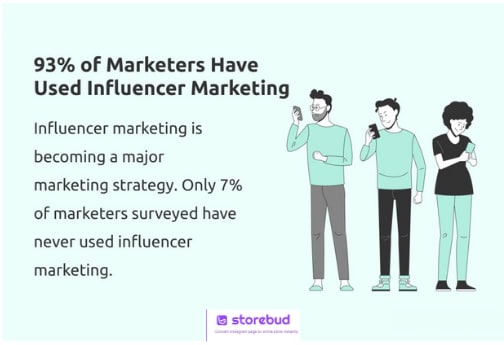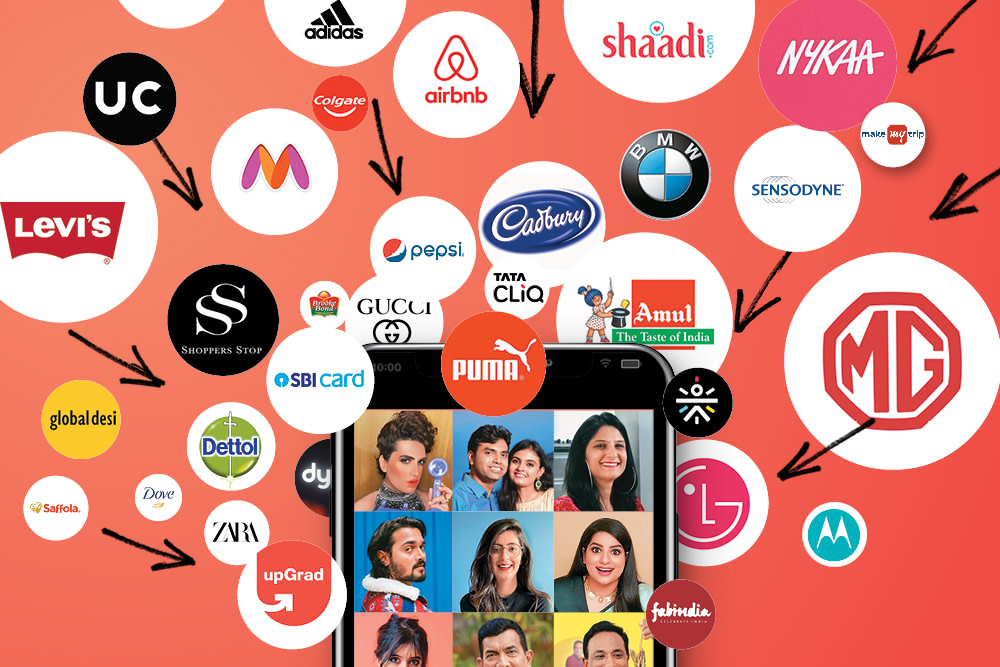How to Leverage Influencer Marketing for Your D2C Brand

Table of Contents
- Introduction:
- How Brands Implement Influencer Marketing
- Promoting a D2C Brand with Influencer Marketing
- The Effectiveness of Influencer Marketing in India
- The Benefits of Influencer Marketing for D2C Brands
- Top 2 or 3 Social Media Tools for D2C Marketers:
- Conclusion:
- FAQ:
Introduction:
In today's digital age, influencer marketing has become an integral part of brand promotion strategies. This holds for both traditional brands and direct-to-consumer (D2C) brands. In this article, we will explore how brands effectively utilize influencer marketing to promote their D2C brands and the benefits it offers in this space.

How Brands Implement Influencer Marketing
When it comes to influencer marketing, brands follow a systematic approach to maximize their impact. Here's how brands typically execute influencer marketing campaigns:
Identifying the Right Influencers
: Brands conduct thorough research to find influencers who align with their target audience and brand values. They consider factors such as follower demographics, engagement rates, content quality, and relevance to their industry.
Building Relationships
: Brands establish relationships with influencers by reaching out through direct messages or email. They offer collaboration opportunities, such as sponsored posts or brand partnerships, and emphasize the mutual benefit of the collaboration.
Defining Campaign Objectives
: Brands and influencers work together to establish campaign goals, such as increasing brand awareness, driving website traffic, or boosting sales. Clear objectives help both parties align their efforts and measure the success of the campaign.
Creating Authentic Content
: Influencers create content that features the brand's products or services. This content is often crafted in a way that resonates with their followers, whether it's through reviews, tutorials, or endorsements. Authenticity is key to maintaining the trust of the influencer's audience.
Amplifying Reach
: Influencers share the content across their social media channels, exposing the brand to their followers. This helps increase brand visibility, generate engagement, and potentially drive conversions. Brands also leverage the influencer's audience to expand their reach and attract new customers.
Promoting a D2C Brand with Influencer Marketing

D2C brands can significantly benefit from influencer marketing due to their direct and targeted approach. Here's how you can effectively promote your D2C brand using influencer marketing:
Targeted Influencer Selection
: Identify influencers who have a genuine connection with your target audience and create content that aligns with your brand's values. Consider influencers who have a strong presence on platforms where your audience is most active.
Authentic Storytelling
: Encourage influencers to authentically share their experiences with your D2C brand. This storytelling approach helps establish trust and credibility among their followers, who are more likely to engage and convert into customers.
Product Reviews and Demos
: Collaborate with influencers to create informative product reviews and demos. This allows potential customers to see your products in action, understand their benefits, and make informed purchase decisions.
The Effectiveness of Influencer Marketing in India
Influencer marketing has proven to be highly effective in India due to its vibrant social media landscape and influencer culture. Indian consumers actively follow influencers and trust their recommendations. Influencer marketing provides an excellent opportunity for D2C brands to reach their target audience and build brand awareness and loyalty.
The Benefits of Influencer Marketing for D2C Brands
Incorporating influencer marketing into your D2C brand's marketing strategy offers several benefits, including:
Increased Brand Awareness
: Collaborating with influencers helps expose your D2C brand to a wider audience, increasing brand visibility and recognition.
Enhanced Credibility
: Influencers are seen as trusted authorities in their niches. When they endorse or recommend your D2C brand, it boosts your credibility and builds trust among your followers.
Targeted Reach and Engagement
: Influencers have a dedicated following that aligns with your target audience. By partnering with influencers, you can effectively reach and engage with the specific demographic or niche that your D2C brand caters to. This targeted approach leads to higher engagement rates and more meaningful interactions.
Authentic Brand Advocacy
: Influencers create content that resonates with their audience, and when they authentically endorse your D2C brand, it translates into genuine brand advocacy. Their followers perceive the endorsement as a personal recommendation, leading to increased trust and a higher likelihood of conversion.
Social Proof and User-generated Content
: Influencer marketing often results in user-generated content where influencers and their followers share their experiences with your D2C brand. This social proof creates a sense of authenticity and encourages others to try your products or services.
Cost-effective Marketing
: Compared to traditional advertising channels, influencer marketing can be a cost-effective strategy for D2C brands. It allows you to leverage the influencer's existing audience and reach without investing heavily in paid advertising.
Top 2 or 3 Social Media Tools for D2C Marketers:
Hootsuite
: Hootsuite is a popular
social media management tool
that enables D2C marketers to schedule and manage their social media posts across multiple platforms. It provides valuable analytics and reporting features, helping you track the performance of your social media campaigns.
Buffer
: Buffer is another widely used social media management tool that allows D2C marketers to plan, schedule, and publish content across various social media platforms. It offers features like post scheduling, content calendar, and performance analytics to streamline your social media marketing efforts.
Sprout Social
: Sprout Social is a comprehensive social media management and analytics tool that caters to the needs of D2C marketers. It offers features such as content scheduling, social listening, audience engagement, and detailed analytics to optimize your social media strategy.
Conclusion:
Influencer marketing is a powerful strategy that can greatly benefit D2C brands. By carefully selecting the right influencers, fostering authentic relationships, creating compelling content, and leveraging the reach and engagement of influencers, you can effectively promote your D2C brand to a targeted audience. The benefits of influencer marketing, such as increased brand awareness, enhanced credibility, and cost-effectiveness, make it a valuable tool for D2C marketers. Additionally, utilizing social media management tools like Hootsuite, Buffer, or Sprout Social can further streamline your social media efforts and maximize your brand's impact in the digital landscape. Embrace influencer marketing and the potential it holds to elevate your D2C brand to new heights.
FAQ:
Ready to take your business online? Sign up with StoreBud and launch your own captivating online store in just 2 minutes! With our user-friendly platform, customizable templates, and secure payment options, you'll be selling products and reaching customers worldwide in no time. Don't miss out on the digital revolution. Get started with StoreBud today and unlock limitless growth for your business!
Can influencer marketing work for small D2C brands with a limited budget?
Absolutely! Influencer marketing can be effective for small D2C brands with limited budgets. Consider micro-influencers who have a smaller but highly engaged audience. They often offer cost-effective collaboration opportunities and can generate meaningful results within a limited budget.
How can I measure the success of my influencer marketing campaigns?
To measure the success of your influencer marketing campaigns, define clear objectives from the start. Track key performance indicators (KPIs) such as reach, engagement, website traffic, conversions, and sales. Utilize tracking links, unique discount codes, and analytics tools to gather data and evaluate the impact of influencer collaborations.
Are there any legal considerations or guidelines when working with influencers?
Yes, there are legal considerations when partnering with influencers. Ensure that influencers disclose their sponsored content in compliance with advertising regulations. Familiarize yourself with local laws and guidelines regarding influencer marketing, including the need for clear disclosures and the prohibition of false claims or misleading information.
How do I build long-term relationships with influencers for sustained brand promotion?
Building long-term relationships with influencers involves fostering mutual trust and collaboration. Provide value to influencers beyond monetary compensation, such as exclusive access to products, events, or personalized perks. Engage with influencers on social media, share their content, and maintain open communication to nurture lasting partnerships.